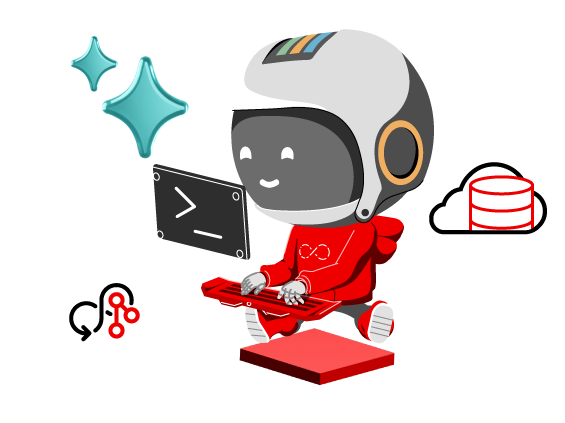Red Hat Developer Hub
Boost developer productivity to new heights with a Backstage-based internal developer portal built for enterprises.

Accelerate innovation with a unified developer experience
Red Hat Developer Hub provides an enterprise-grade internal developer portal that improves developer collaboration and accelerates innovation with a centralized, self-service platform. By unifying tools, documentation, and best practices, it enables developers to focus on building and delivering value while ensuring security and compliance at scale.
- Improves developer and application onboarding
- Streamlines development workflows
- Drives innovation at scale

Need to focus on the big tasks? Get an assistant.
From troubleshooting applications to designing new features, Red Hat Developer Lightspeed for Red Hat Developer Hub is an AI assistant designed to be a collaborative partner in your development work.
- Get answers in Red Hat Developer Hub using Developer Lightspeed, reducing time spent searching through documentation or other resources.
- Brainstorm with Lightspeed to create test plans, design new features, or update technical documentation.
- Use your own LLM! Bring your preferred model to control for performance, cost, and data privacy needs, and Lightspeed will work with it seamlessly.
Developer Lightspeed for Red Hat Developer Hub is available with a Red Hat Developer Hub or Advanced Developer Suite subscription. Please note that this feature is currently in Developer preview.



